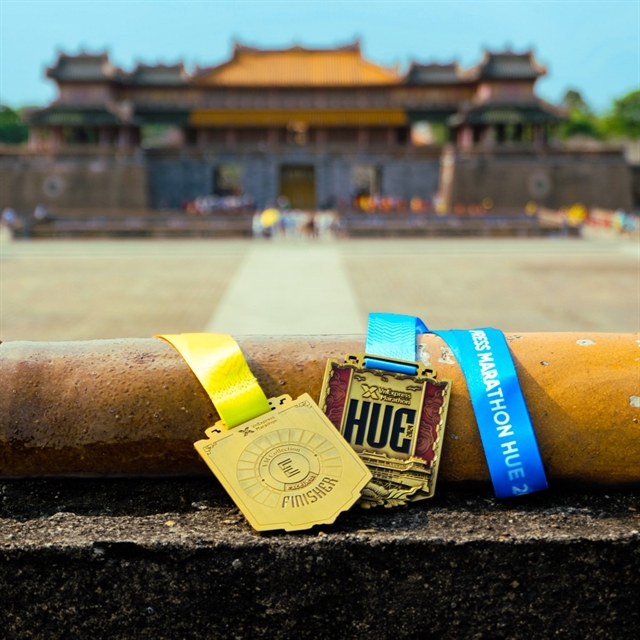
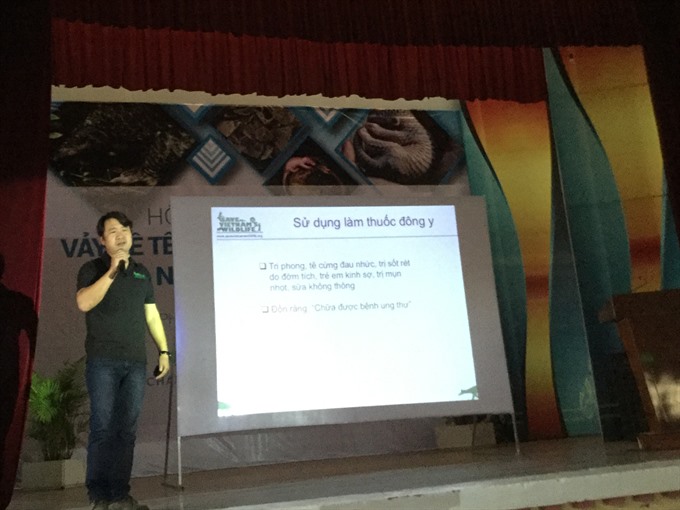 |
| The scales of pangolins, the world’s most trafficked mammal, have no medical benefits, experts said at a workshop held in HCM City last Saturday. Eight pangolin species are on the edge of extinction. — VNS Photo Gia Lộc |
HCM CITY — The traditional use of pangolin scales to treat blocked milk ducts is touted by a number of websites online, but doctors of traditional medicine say scientific research proves that it is ineffective.
In the past, scales from pangolins, the world’s most trafficked wild mammal, were used in Việt Nam for medical treatment, but there is no evidence to support it, said Dr Nguyễn Thị Bay, former head of HCM City University of Medicine and Pharmacy’s Traditional Medicine Faculty.
Bay spoke at a workshop on the medical value of pangolin scales held on Saturday in the city.
Students of traditional medicine at Vietnamese universities are now taught that pangolin scales are ineffective and that bồ công anh (scientific name of Lactuca indica), and Indian camphorweed should be used instead.
Dr Lê Thị Thu Hà, head of the Từ Dũ Obstetrics Hospital’s Postnatal Department, said that mothers with blocked milk ducts should let their baby nurse on the breast with the blocked duct as the child’s sucking can help dislodge the blockage.
"Mothers can also use a breast pump or hand express the milk, and use heating pads to ease the pain and discomfort caused by blocked ducts. Massage also helps," Hà said.
Dr Lê Hùng, chairman of HCM City Traditional Medicine and Acupuncture Hospital, said that advertisements often falsely claimed that pangolin scales can treat cancer and diabetes in addition to improving male energy and vitality.
In the past decade, one million pangolins were hunted and sold worldwide, leading to a decline in pangolin population, according to the workshop’s organisers - the Center of Hands-on Action and Networking for Growth and Environment (CHANGE), in co-operation with WildAid, a US environmental organisation.
Việt Nam and China lead the global demand for pangolins, they reported.
The Asian pangolin population plummeted by 80 per cent in just 21 years.
Pangolins, the only mammal with skin covered in scales, eats 70 millions insects every year.
It does not thrive in captivity and produces one offspring at a time.
In the world, eight species of pangolin are on the edge of extinction.
Việt Nam’s two species, the Chinese and Sunda pangolin, are critically endangered.
Last July, the Government raised the penalty for illegal hunting and trading in pangolin to 15 years in prison.
Government agencies in recent years have strengthened their inspections and seized trafficked pangolins.
In the past 10 years, the country’s authorities seized 54.8 tonnes of pangolins and 14.7 tonnes of scales.
The workshop, part of the Save Pangolins campaign begun last year, works to reduce demand for wildlife products. — VNS

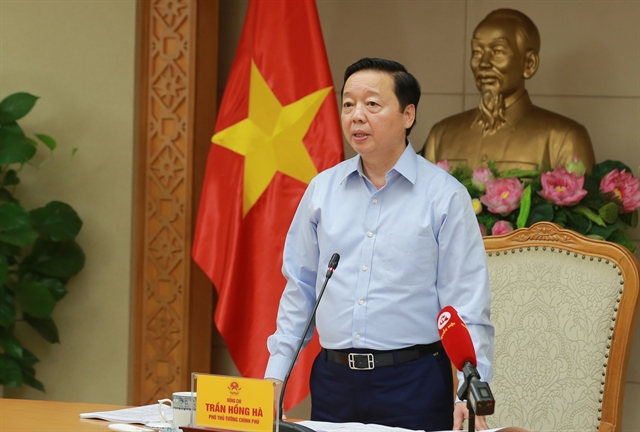
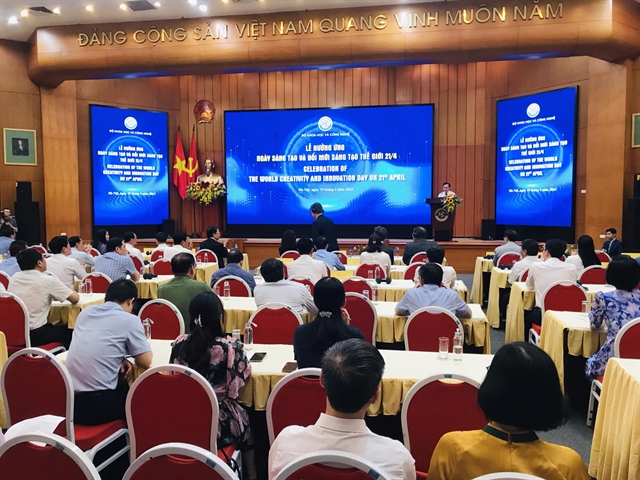
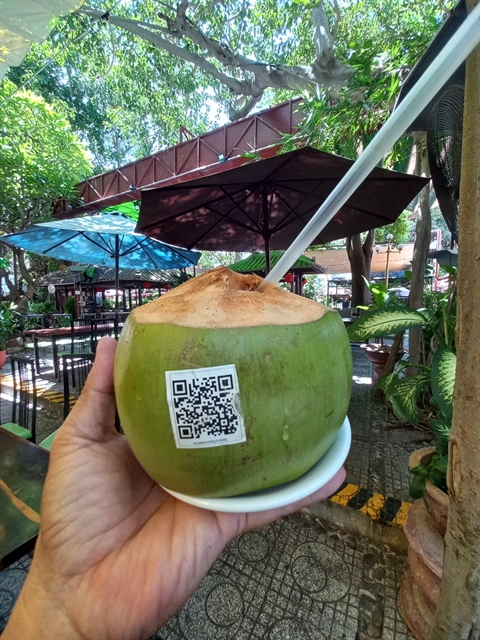
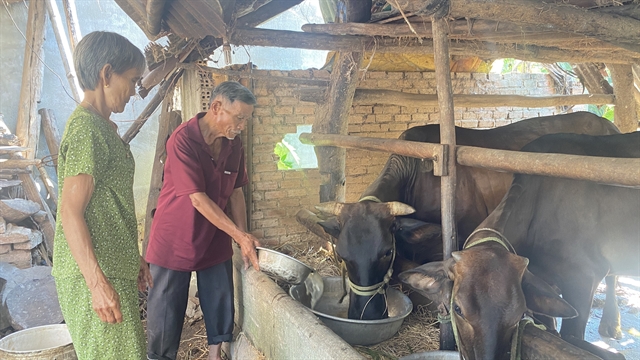
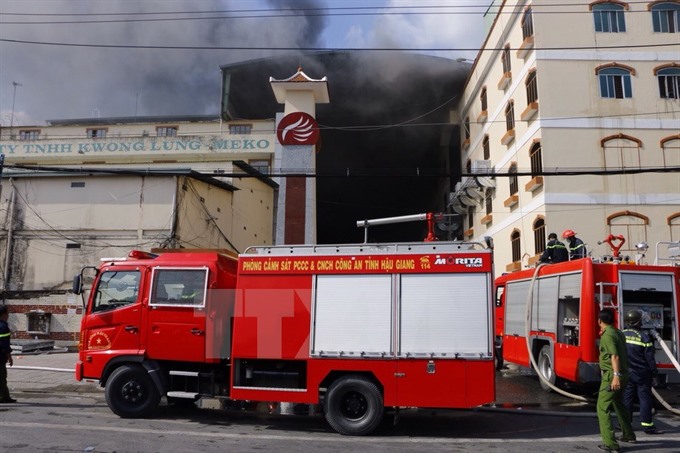



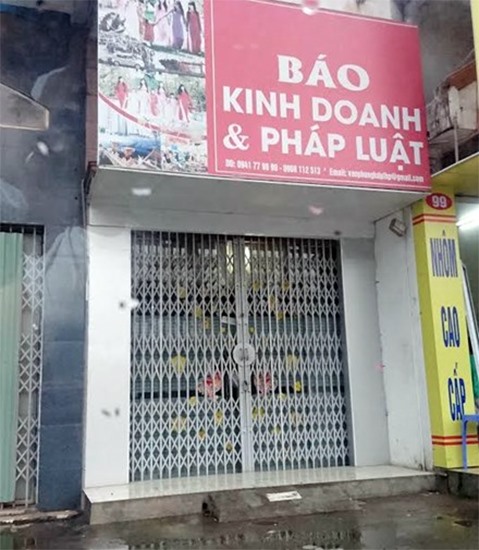

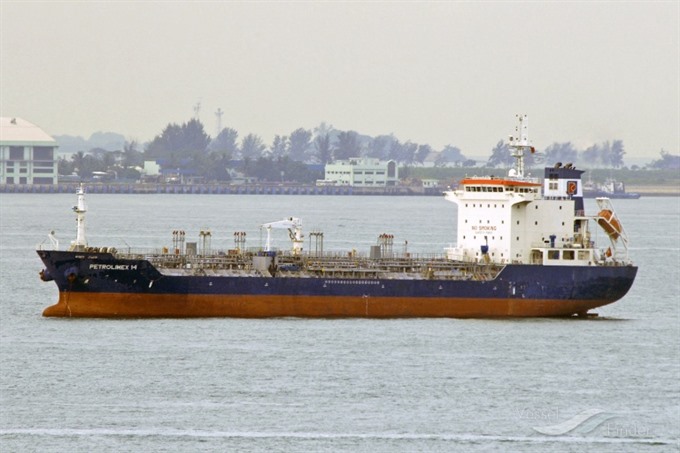


.jpg)
